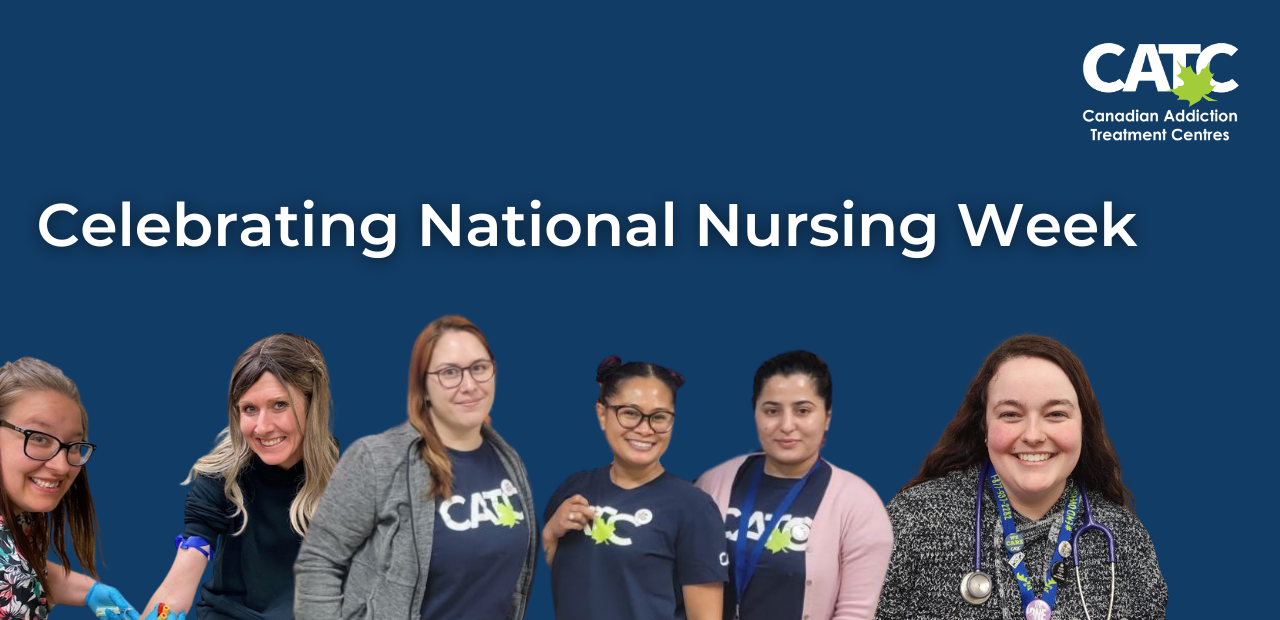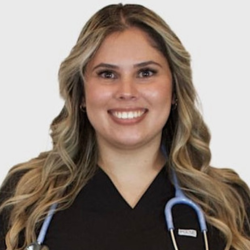Nursing Week 2024: Interview with Raquel Pereira
Nursing Week 2024: Interview with Raquel Pereira
During National Nursing Week, we’re celebrating the incredible nurses who play a pivotal role in the recovery process for patients and clients in our care. We spoke with Raquel Pereira to learn more about her experiences, challenges, and the profound impact of her work.
1. Why did you become a nurse, and what drove you to specialize in addictions care?
When I was growing up, I was always inspired by my aunt’s love for the nursing profession. She was always going above and beyond for both her patients and her community, meeting patients where they were at, volunteering after hours as an outreach nurse, donating medical supplies to those in need. I used to tag along with her while she volunteered, and this is what really made me want to become a nurse. When I finished nursing school and was applying for jobs, I came across a part-time position with OATC. I did not know much about the addictions treatment world, and thought this would be a good challenge for me. What started as a way into the nursing world turned into a passion for the population we serve. I completely fell in love with the work and this community. Fast forward 5 ½ years later, and I’m still with the company working full-time.
2. Can you share a memory from your time working at one of our treatment centres, in which you were able to make a real difference in a patient/client’s recovery?
One of our patients had tested positive for Syphilis, however his physician was not sure on how to proceed with treatment, I reached out to Public Health, got the patient connected with a Nurse Practitioner who developed a treatment plan while we continued following up with patient and blood work results. This case was especially complex, as he was unhoused and transient, had an allergy to Penicillin and was very hesitant to go into hospital for monitored treatment. He was losing his vision quite rapidly as a cause of the Syphilis. After multiple tries, the Public Health nurse and I were able to get the patient treated within community spaces that he felt comfortable and safe (including the clinic). The treatment was successful, and they have since regained their vision back.
3. What do you find to be the most challenging and rewarding aspects of working in addiction treatment? What keeps you motivated through the challenges?
I find that our limited resources are the most challenging aspect. We are always wanting to do more and help our patients in all aspects of their lives, but not having all the tools we require. As for what keeps me motivated through these challenges, I would say that the amazing co-workers I work alongside with makes all the difference in navigating these challenges. It is an honour to be apart of such an interdisciplinary team of nurses, support staff, physicians, patient support coordinator and more.
4. What is your approach to building strong relationships with people in your care, and why is it so important to do so?
I think it’s extremely important to make every patient feel cared for as soon as they walk through the doors. Taking the time to listen and chat with patients, and completing intakes or nursing assessments through a trauma-informed lens is crucial to building strong relationships. Making our clinics a judgement free space where patients feel welcomed and cared for is key.
5. Why should nurses choose to work in addictions care? What is your favourite part of the job?
Addictions & Mental Health is a specialty that unfortunately is still very stigmatized. More nurses should choose to work in this field to have a better understanding about people who use drugs, how substance use affects people from all walks of life, and to be able to witness the incredible strength and resilience of this community. We need more nurses and medical professionals working within the addictions care sector. We have a responsibility, as medical professionals, to work towards strengthening the relationship between those who use drugs and the medical world. Individuals who use substances deserve healthcare just as much as those who do not use substances. I hope that I can continue spreading awareness to other nurses, and would encourage any nurse thinking about entering this field to do so with openness and willingness to challenge societal norms, even within themselves.
Thank you, Raquel, for everything you do. Happy National Nursing Week!

